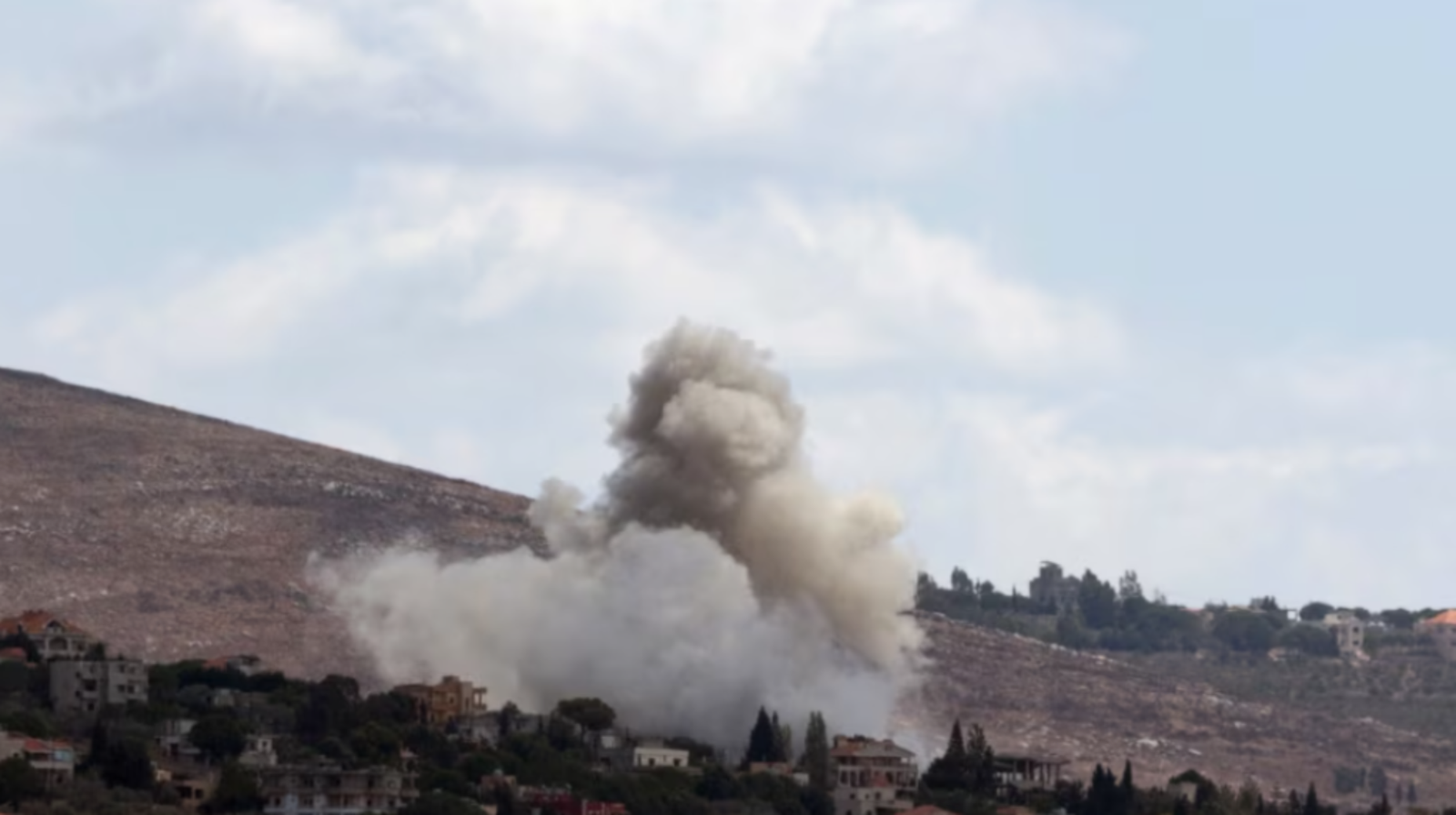The Israeli military said on Thursday it carried out strikes against seven Hezbollah positions in southern Lebanon, while also announcing the arrest of an Israeli citizen suspected of involvement in an Iran-backed plot to kill Israeli officials.
Israeli authorities said in a statement that the man arrested was a businessman with ties to Turkey who attended at least two meetings in Iran and that potential targets of the plot included Prime Minister Benjamin Netanyahu and Defense Minister Yoav Gallant.
The arrest was made last month, the statement said.
In addition to the Israeli strikes on Thursday, the Israeli military also reported that several drones had crossed from Lebanon into Israeli territory.
The latest cross-border attacks followed explosions of handheld radios and “pager” communications equipment used by Hezbollah in Lebanon, which killed at least 32 people and injured over 3,000 others on Tuesday and Wednesday. Hezbollah blamed Israel for the blasts, which neither confirmed nor denied involvement.
Israeli Defense Minister Yoav Gallant said on Thursday he had spoken by phone with U.S. Defense Secretary Lloyd Austin about the situation in the region, including “protecting Israel against Hezbollah threats”.
The Pentagon said Austin reiterated the United States ‘” unwavering support for Israel in the face of threats ” from Iran, Hezbollah and other Iranian partners in the region.
“Secretary Austin emphasized the United States’ commitment to deter regional adversaries and efforts to de-escalate tensions across the region,” a Pentagon spokesman said.
Explosions of equipment
The explosions of “pager” communications equipment and handheld radios followed Israel’s announcement that it was expanding the objectives of the fight against Hamas militants in the Gaza Strip, including protecting Northern Israel from Hezbollah rocket attacks.
But some former intelligence officials argue that the explosion of Hezbollah’s “pager” equipment, handheld radios and other equipment could be part of an Israeli effort to achieve its objectives without having to fight.
“What Israel is trying to do is to prevent Hezbollah from carrying out attacks with 50-60 Rockets a day, but without risking a wider war,” said Daniel Hoffman, a former CIA official.
Hoffman told VOA the operation, allegedly carried out by Israel, may also have been an attempt to weaken Hezbollah’s position in Lebanon.
” It aims to distance the citizens of Lebanon from Hezbollah, ” he said. “The message is,’ you should not be close to Hezbollah members’.
Former CIA official Daniel Hoffman said that given the capabilities of Israel’s intelligence services, the possibility of future operations on other types of Hezbollah equipment cannot be ruled out.
Other former intelligence officials have suggested that the operation to blow up communications equipment also gives Israel an advantage if tensions with Hezbollah escalate.
According to them, these explosions have at least weakened Hezbollah’s ability to communicate in times of crisis and at the same time take the main militants off the battlefield.
Hezbollah began using “pager ” communications equipment after the group’s leader ordered members to stop using cellphones amid concerns that Israel could intercept and track their communications.
Dr. Tania Baban, a doctor in Lebanon who works for the U.S.-based medical charity MedGlobal, told VOA her group performed more than 460 operations related to injuries caused by explosions of pager devices on Tuesday, including finger and hand amputations.
Security experts in the Middle East and the United States told US media that they believe Israeli agents somehow tracked the shipments of “pager” equipment, managing to fill them with explosives before they reached Lebanon and were distributed by Hezbollah.
Hsu Ching-Kuang, founder of Taiwan-based gold Apollo, told reporters on Wednesday that his company no longer made” pager “devices, even though its logo was seen on the remains of the exploded devices that were examined on Tuesday.
He said the Gold Apollo firm had allowed its brand to be used on devices manufactured and sold by a company called “BAC” with address in Hungary’s capital, Budapest.







